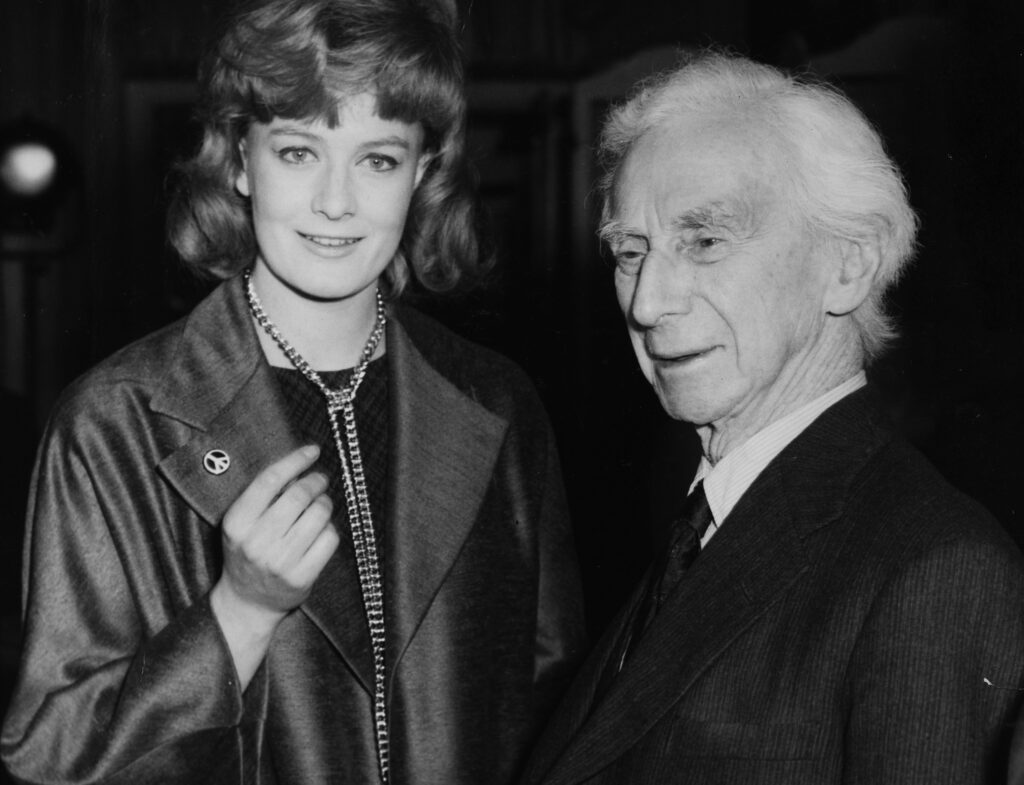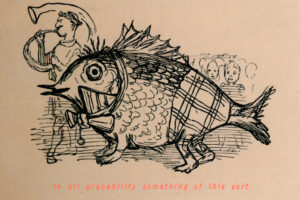“Bloodless Pedantry”

The academic study of philosophy tends to inspire contempt, from within and from without. Stephen Hawking’s pompous pronouncement in 2010 that “philosophy is dead” is just one version of a widespread view among scientists and other intellectuals. In public discussions outside the university, it is common to find dismissive remarks about academics and their ivory towers, but in my experience philosophy comes in for special treatment. As an academic philosopher myself, I often ask: why single philosophy out?
Part of the answer is the feeling that philosophy is failing to do what it should really be doing. Everyone (so it is assumed) cares about the big questions about life’s meaning and value, about truth and knowledge and justice–and surely this is what philosophy should be dealing with. But it isn’t. Instead, academic philosophy seems to address incomprehensible or trivial questions only of interest to other academic philosophers and inaccessible to the ordinary inquirer. In this way philosophy seems to miss the point of the original philosophical urge, and thus seems even more pointless than other arcane academic studies.
The idea isn’t new, of course. When John Keats asked two hundred years ago, “do not all charms fly at the touch of cold philosophy?” he was expressing a similar sentiment: we look for depth, illumination, edification, and so on. And what do we get? A “dull catalogue of common things.”
This critique is often brought against the so-called analytic school in philosophy, which now dominates universities in the English-speaking world and in parts of Europe. Analytic philosophy began in England around the turn of the 20th century and—blending various traditions and influences across Europe—spread to the US and other Anglophone countries. It tends to emphasize the connections between philosophy, science, and “commonsensical” beliefs. In the theory of knowledge, it is largely empiricist, holding that knowledge is mostly justified in terms of the evidence of the senses and that philosophy must be integrated with natural science. In moral philosophy, it is dominated by the debate over consequentialism—the view that actions should be judged on their consequences alone—and in political philosophy, by liberalism. It typically presents itself as defending everyday ideas about the nature of reality and our place in it, rather than building abstruse total theories in the style of Kant or Hegel.
The academic success of analytic philosophy has provoked many intra-philosophical versions of Keats’s complaint. A Social History of Analytic Philosophy (2025) by Christoph Schuringa is a case in point, also using the word “dull” to describe its target (Oxford is the “home of dullness”). Its explicit aim is to develop a Marxian “ideology critique” of analytic philosophy, through a social history of the academic discipline itself. Schuringa traces what he calls (in a perfect phrase) the “bloodless pedantry” of analytic philosophy to its conception of itself as standing above history and politics, resulting in what he sees as a deeply conservative concern with supposedly technical problems, removed from their historical and social context.
Schuringa’s subtitle summarizes his overall message: How Politics Has Shaped an Apolitical Philosophy. Analytic philosophy presents itself as essentially apolitical, and as something new to the 20th century. In fact its roots are easily traced to 17th- and 18th-century liberalism and empiricism. For Schuringa, identifying these roots is enough to undermine analytic philosophy as a project:
Empiricism is the view that all knowledge is derivable from sensory experience; liberalism exalts the autonomy of the subject. Together, they form the ideology of the bourgeois class that rose in the seventeenth and eighteenth centuries. The rise of the bourgeoisie was driven by capitalism, whose success in imposing itself as the global economic logic was in turn secured by the European colonial exploitation of the ‘new world’.
Max Horkheimer once described the Viennese ancestor of analytic philosophy, logical positivism, as “only a miserable rearguard action of the formalistic epistemology of liberalism, which also in this area turns into open servility to fascism”—a remark Schuringa describes favorably as an “early attempt at ideology critique” of analytic philosophy.
The original sin of analytic philosophy, then, is that it simply recreates the 18th century “bourgeois” ideologies of liberalism and empiricism, and does so without any historical or critical awareness. Not only are these ideologies pernicious in themselves—Schuringa talks of “the fact that the ideological function of liberalism is the justification of a system of subjugation”—but analytic philosophy deserves special contempt for being so deeply historically entangled with these political ideas while assuming that it is, in itself, apolitical and ahistorical.
Schuringa’s book is impressive in its ambition, its elegant style, and its sound grasp of the details of analytic philosophy. But it is not a success as a social history, nor as an ideology critique. The social history largely amounts to treating analytic philosophy as a “personality cult” and pointing out the privileged backgrounds of the leading personalities in English and European analytic philosophy, who were mostly men. Bertrand Russell, one of the originators of the movement, was an English aristocrat; Ludwig Wittgenstein, Russell’s most distinguished student, came from one of Austria’s richest families; and leading philosophers of the mid–20th century such as A.J. Ayer, Michael Dummett, and J.L. Austin were educated at England’s leading private (so-called public) schools.
It is true of course that Russell and Wittgenstein came from unusually influential and wealthy families, but attendance at the leading public schools would not have distinguished analytic philosophers from other English academics of the time. All English universities were dominated by the cultures of Oxford and Cambridge, and Oxford and Cambridge were at that time dominated by public-school-educated men. This is not news and does nothing to explain what is historically special about analytic philosophy.
There is nothing in the book about institutional history, nothing about the real impact of political or religious movements on any specific ideas in analytic philosophy. The closest Schuringa comes to this is in his account of how analytic philosophers failed to respond adequately to the McCarthy-era hostilities in 1950s America. This key part of his ideology critique is based on what he identifies as the “neutralism” of analytic philosophy: the idea that philosophy can be pursued without a general political orientation and that many parts of philosophy have no political relevance at all. His argument in outline is that philosophers who were suspected of un-American activities retreated to a politically neutral conception of philosophy to protect themselves: “analytic as well as non-analytic philosophers were affected by McCarthyism. What it shut down decisively was those who challenged the neutralism so congenial to analytic philosophy.”
Schuringa recognizes that the logical positivists—émigrés from Nazi persecution who mostly fled to the US in the 1930s—tended to be left-leaning, and some were politically engaged when in Austria. But he then argues that they were silenced by McCarthyism and in effect invented the idea that their philosophy was neutral as self-protection. He criticizes those who defend the “sincerity of [the philosophers’] protestations of neutrality” with the extraordinary response that “one should remember that sincerity is a matter of only subsidiary concern in the critique of ideology.”
In other words: regardless of what philosophers might say about the neutrality of some part of philosophy, regardless of how they might try to justify it, their words should not be taken seriously. In this specific case, neutrality can only be seen as a tactical move to avoid the McCarthy purges, and therefore (by accident or design) to implant the apolitical analytic philosophy into American universities.
Of course, ignoring sincere expressions of views is a standard part of ideology critique (it’s the “he would say that, wouldn’t he?” move). This project is to identify ideologies as driving behavior, regardless of what the actors actually say or do in their own explanation or defense. Marxian presuppositions like this are undefended in Schuringa’s book—which is fine in itself; they are its starting points. But as such, they are as debatable as any other starting point in philosophy.
Schuringa enjoys poking fun at analytic philosophers’ appeals to “intuition” in defense of their views, and he makes some good points against them. But as David Lewis once said, intuitions are just opinions—they are the opinions you start with, from which you build the rest of your philosophy. Schuringa’s Marxian starting points are his own intuitions, in this sense.
Those who do not accept these starting points can take a different view of the phenomenon. In the particular case of McCarthyism, they can argue that it is perfectly coherent for these philosophers to avoid doing anything that would incriminate themselves with the red-baiting thugs, and simultaneously to believe with good reasons that many areas of philosophy are politically neutral. And these reasons could be wholly independent from their political inactivity.
Schuringa’s approach blinds him to this interpretation, perhaps because he seems to find it impossible to take seriously the idea that parts of philosophy might actually be nonpolitical or neutral. In addition, nowhere does he defend his view that empiricism and liberalism are so deeply mistaken that merely identifying the origins of analytic philosophy in empiricism and liberalism is enough to damn it.
Perhaps his view is that we are no longer allowed to discuss the tenability of ideas like empiricism and liberalism as straightforward questions. But he does not explain why. Some philosophers on the left have attempted full-scale critiques of the dominant liberalism of analytic philosophy. Raymond Geuss, for example, has argued that analytic liberalism has no real account of the central political phenomenon: power. But A Social History of Analytic Philosophy fundamentally relies only on slogans like “the ideological function of liberalism is the justification of a system of subjugation.”
If we put to one side the ideology critique, Schuringa’s book is best seen as an intellectual history rather than a social history (as Kieran Setiya noted in a recent review). Schuringa clearly demonstrates how very different traditions—from Cambridge, Oxford, Vienna, and the US—united around the label “analytic philosophy” in the post-WWII period in UK and the US. And since he is assessing the tradition from the outside, he is not constrained by the usual whiggish historical story analytic philosophy tells itself (i.e. that it finally introduced a commonsense clarity and respect for science into a philosophical tradition that had lost its way). He is therefore in a good position to dissolve a lot of the founding mythology.
According to the self-conception of analytic philosophy, analytic philosophy is a unified and rigorous field with a variety of methods, closely allied to mathematical logic and progress in natural science. It is distinguished from so-called continental philosophy through the rigor of its methods and techniques and through the “intuitive” character of its pre-given “problems.” And, importantly, it can (and should) be successfully pursued without any historical awareness: studying philosophy is one thing, studying its history is quite another. The Princeton philosopher Gilbert Harman used to have a sign on his office door that said “Just Say ‘No’ to the History of Philosophy.”
This conception of analytic philosophy is self-serving and in many ways inaccurate, and it is one of the merits of Schuringa’s book to show why. Like many before him, he demonstrates that the collection of approaches and doctrines that fall under the heading of analytic philosophy have nothing essential in common. In an insightful essay, Jonathan Rée (one of the heroes of A Social History of Analytic Philosophy) commented that philosophers at Oxford in the 1950s all thought that they were part of a revolution in philosophy—but none of them could agree on what the revolution consisted in. Analytic philosophers are not all empiricists, they are not all materialists, they are not all scientistic, and they are not all liberals. In terms of doctrine, some analytic philosophers have more in common with continental philosophers than they have with other analytic philosophers, or with Kantians or Hegelians.
Nor is there a unity in method, or an agreed consensus about the priority of certain areas of philosophy. Some followed Austin in paying attention to the nuances of “ordinary language”; Dummett argued that analytic philosophy must place a more systematic philosophy of language at its heart; Russell said that philosophy was about the analysis of “logical forms,” and others followed him in making formal logic the heart of the discipline; W.V.O. Quine followed the Vienna Circle in his proclamation that “philosophy of science is philosophy enough.” But all of these views have been challenged by philosophers who are themselves indisputably analytic in their formation, temperament, and professional standing. There is no single analytic method, and there are no uniquely analytic doctrines.
As Schuringa observes, some philosophers have responded to this lack of unity by triumphantly claiming that there is really no such thing as analytic philosophy after all. According to this view, there is just philosophy as such—and all that analytic philosophy has done is return philosophy to its proper menu of pre-given problems.
But this is clearly not true. The American pragmatist tradition was not analytic. Husserlian phenomenology is not analytic, nor was Confucianism or Buddhism. And most relevant here is the fact that the continental tradition is not analytic. The comparison with continental philosophy will help us get a better understanding of what analytic philosophy really is.
It is a commonplace that continental philosophy is even less of a unity than analytic philosophy. The term is used these days to designate a loose collection of philosophical traditions of thinking, maybe stretching back to Kant, and through post-Kantian 19th-century German thought (noticeably Hegel, Marx, and Nietzsche), through the phenomenology of Edmund Husserl and those who responded to him—Martin Heidegger in pre–WWII Germany, and Maurice Merleau-Ponty and Jean-Paul Sartre in France—to the post-war French philosophers, Jacques Derrida, Gilles Deleuze, Emmanuel Levinas, Michel Foucault, and many others too numerous to list here. The label also sometimes includes the Frankfurt School (Theodor Adorno, Max Horkheimer, Herbert Marcuse) or Critical Theory.
None of the philosophers classified here as continental would have described themselves that way. The traditions of post-Kantian German philosophy, phenomenology, existentialism, post-structuralism, Nietzscheanism, and Critical Theory have very little important in common. There is no continental philosophy research program. Rather, the label “continental” is used in Anglophone academic contexts to designate an institutional or personal commitment to some or all of these traditions, typically defined in opposition to analytic philosophy. It’s worth noting that the term “continental philosophy” was first used in 1838 by John Stuart Mill in a pair of essays on Jeremy Bentham and Samuel Taylor Coleridge. Mill represents Coleridge as a paradigm of what he called the “continental style” of philosophy, in contrast to the empiricist, utilitarian English thinker, Bentham. The label “continental” was used first as a term for the opposition.
And as Schuringa points out, so was “analytic.” The idealist Oxford philosopher R.G. Collingwood “used the term ‘analytic philosophy’ pejoratively in 1933 to group together philosophers of whom he disapproved, in one of the first appearances of the expression in print.” In both cases, the label was introduced as a term for the despised philosophical “Other.” The difference is that analytic philosophers quickly embraced the term, and from the post-WWII period onward, it was used in popular textbooks in universities in North America.
The fact that neither analytic nor continental philosophy has a distinct philosophical essence does not mean, however, that there is no distinction between them. Not all real distinctions are philosophical distinctions. Anyone familiar with contemporary philosophy would have no difficulty picking out the main figures in each tradition, even if those in the traditions themselves reject the terms. But what is lying behind the distinction, if not doctrine or method? Schuringa does not himself want to defend the category of continental philosophy, and prefers to identify analytic philosophers as a certain personality type (as Hugh Foley has pointed out). It is this type he really doesn’t like: nit-picking, pedantic, and “too clever by half,” with an uncritical approach to their assumptions and a complacent self-image.
You know what he means. But looked at more impartially, the real distinction between analytic and continental philosophy is neither psychological nor deeply philosophical. Rather, it is a distinction between two loose collections of historical traditions constituted not by doctrine or even style, but by different series of canonical texts and ways of reading them. Some texts—by Kant, Hegel, Nietzsche, Husserl, Heidegger, Wittgenstein—belong to both series, but the difference is in the way they are read, what is emphasized, and what is ignored.
On this way of thinking analytic philosophy emerges, not as the house philosophy of neoliberalism, nor as the favored intellectual exercise of a certain obnoxious personality type, but rather as a contingent, historically constructed sequence of texts, together with a way of reading them. This is a somewhat deflationary view of the tradition, lacking the totalizing vision of Schuringa’s Marxian approach. But it seems to me that only this way of thinking can account for the lack of unity among the themes and doctrines of analytic philosophy while simultaneously explaining how it hangs together as a tradition.
Analytic philosophy dominates the departments of philosophy in the leading universities in the Anglophone world and elsewhere, although it has had little impact on the general culture and on other parts of the academy. Continental philosophy has had more impact on the humanities and social sciences more generally: Michel Foucault is the most-cited academic on the whole of Google Scholar. But analytic philosophy is institutionally dominant within philosophy departments. Why is this?
Shuringa is quite right that in Britain the background culture of empiricist and utilitarian ways of thinking made it very easy for those traditions to blend into what became analytic philosophy as we have it now. But the rest of the explanation of the institutional success of analytic philosophy must be largely historical, rather than philosophical.
In particular, the dominance of analytic philosophy should be understood in terms of the emerging worldwide dominance of US universities in the post-WWII period and a certain kind of academic professionalism to which the methods of analytic philosophy were very suited. The image of the scholar as a researcher, working within an accepted framework of assumptions, whether individually or as part of a team, is at the heart of the modern concept of the university. And it suits much of analytic philosophy very well.
Other contingent features of analytic philosophy may contribute to its institutional success. For example, it is largely conducted in English-speaking journals and conferences, giving an undeniable advantage to native speakers, and unlike historical study, it does not require any knowledge of other languages. The historical and pedagogical connection with logic has also allowed analytic philosophy to present itself as closely allied with disciplines like mathematics and computer science (which of course it once was, in part at least).
Much more needs to be said about how this institutional change took place. But the paradox is that the more analytic philosophy became dominant in the universities, the more it became removed from the concerns of the average person with philosophical interests. (Most of the concerns of continental philosophy are equally remote, but that is a different story.) This brings me back to the question with which I began.
If philosophers are to seriously address the hostility and incomprehension that they encounter, they need to start with a plausible account of their own intellectual discipline. They may tell themselves that philosophy is a technical subject-matter, with its own techniques and high standards, and in a way this is correct. But they also need to tell a story about how philosophy in this sense relates to many other things that the world has counted as philosophy.
It seems to me that the real value of Schuringa’s book—once we detach the ideology critique and the social history—is that it makes a serious and plausible attempt to tell such a story. His discussion of the supposed neutrality of analytic philosophy, for example, and his discussion of the importance of the concepts of necessity and possibility (and their logic) genuinely illuminate the way analytic philosophy has developed its own distinctive way of thinking.
Of course, Schuringa himself dislikes this way of thinking, but that’s another matter. The point is that he does clearly identify these central themes, and he explains which philosophical influences give rise to them. Looked at this way, his book is a serious attempt to understand why analytic philosophy confronts certain problems and questions and ignores others—where these questions come from and which contingent intellectual circumstances led to those becoming the dominant questions.
If analytic philosophers were to reflect in a more disinterested, less defensive way about their tradition, it could help them understand why philosophers of other traditions find it so obscure, and why those outside philosophy can find it so pointless. The truth is that the point of philosophical questions can only be understood once you know which texts philosophers are reading, which texts those authors were responding to, which texts their teachers thought were most significant, and how these teachers told them to read the texts. And of course you must also understand something of the intellectual, institutional, scientific, religious, and social context behind these questions. If they were to do this, analytic philosophers should come to realize two things: that analytic philosophy has no special right to its menu of problems as constituting what is really philosophy; but also that this does not mean that its questions are not real, nor that they do not matter.
To convey to those on the outside why these questions matter, though, is no easy task. Analytic philosophers would need to develop both a historical sense and a better way of talking to those whom they see as “non-professionals.” And the non-professionals would also need to make a serious attempt to understand the historical story of why philosophy is where it is today. Many are not prepared to make this effort, so we never reach real communication. But part of the responsibility for this must lie with analytic philosophers, who have not done a good job of explaining to their critics the importance or interest of the particular problems that preoccupy them. It would be a first step in improving this situation if they could first explain these things to themselves.
Tim Crane is Professor of Philosophy and Pro-Rector at Central European University, Vienna. He was previously Knightbridge Professor of Philosophy at the University of Cambridge, and is the author of a number of books including Elements of Mind, The Mechanical Mind, and The Meaning of Belief.


